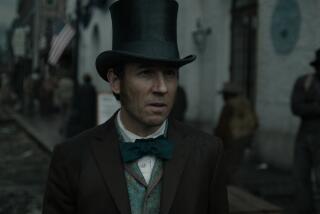Media and the Manhunt
- Share via
In a compelling, weird way, the arrest of two suspects in the Washington-area sniper shootings seems like the cancellation of an awful reality-TV show that we hated but couldn’t resist watching. The terrible deaths and injuries to innocents, made worse by a bewildering randomness, terrorized that area while TV instantly home-delivered matching fears across the land. The manhunt now becomes a process story in more familiar legal forums, allowing us to see institutions determining facts, innocence or guilt and punishment.
The nation has had serial killers and mass murderers before, but none so ongoing, so quickly and deeply penetrating the nation’s psyche. That’s a measure of two things. It re-demonstrates TV’s permeation of life, especially the all-news cable channels with their own peculiar, at times perverse, competitive drives. And it exposes lingering scars and latent fears persisting even 14 months after the 9/11 attacks. Having witnessed that dramatic devastation, also on TV, we’re simply more prepared to be scared now -- be the threat a sniper, foreign fundamentalist, domestic child abductor or marauding shark. That’s a normal reaction, not bad if it instills a new kind of rational caution.
As a member of the industry, we hesitate to offer unsolicited advice to the ubiquitous media. But this case, involving cryptic messages from police to culprit through the media, demonstrates that news reporters can become participants in the news they’re covering. Several times the sniper appeared to react to coverage.
Each news outlet should reexamine its decisions. Were they true to a mission of delivering news, not speculation, of reporting facts, not hyped promotional opportunities? Though marketable, is it proper to give a disturbed, unidentified killer the same blanket celebrity coverage as less lethal personalities? Must we speculate on targets or offer dramatic rifle-scope cross-hair images, as nifty as they probably looked in draft form?
Cable news knows that ratings jump with continuous coverage of a story. Fine. TV is great at relaying facts and sights. But cable’s “blabocracy” is awful at pondering and proportion. Here’s the real decision: Are there enough facts to warrant continuous coverage? The sniper story often had little news. But countless hours were filled with obsessive speculation by “profilers” and “security experts” unearthed by program bookers needing to fill time. If these folks are so expert, why aren’t they on the case?
Dinner table speculation is one thing; on national TV, it’s something else, possibly incendiary. It’s hard to envision CBS’ Walter Cronkite on the afternoon of President Kennedy’s assassination asking experts to guess the unidentified assassin’s nationality, religion or motive. As we’ve all seen recently, much has changed in American society. News consumers now need to factor worthiness and wisdom, not just entertainment value, into their viewing decisions.
More to Read
The complete guide to home viewing
Get Screen Gab for everything about the TV shows and streaming movies everyone’s talking about.
You may occasionally receive promotional content from the Los Angeles Times.






